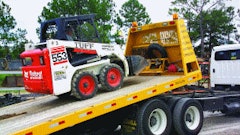
Think I’m joking? Try asking any repeat customers why they’ve continued to allow your organization that chance to complete more projects for them. Chances are better than 50-50 that you’ll hear them make mention of the trust or appreciation they feel for your field leader. This leader might be a crew foreman, project manager, a jobsite superintendent or a combination of all three.
Most contractors and senior construction leaders realize the potentially close relationship that can grow between customers and their project leaders. Many customers embrace the opinion that if you really want to know what’s going on, go to the source who is leading, directing and managing that project. Therefore, with such importance at the “tip of the spear” for any project, why do so few construction companies actually commit to any formal training for their field leaders on selling or customer retention skills?
Several reasons exist for our focus here, including:
- Field leaders are craftsman or focused on the technical
- Field leaders have enough on their plate without adding selling to their job description
- Most field leaders just aren’t “people guys”
- Field leaders are doers not sellers
- Field leaders are not interested in being a “sales guy”
- Most construction companies have defined business d-focused “experts”
- Most construction companies simply have never considered this a priority
- Most construction companies accept that some field leaders will help win more business and some won’t; and there’s little-to-no training to improve this
Ok, let’s be honest here, how many of the above reasons might subtly reflect some of the hesitancy in your company? Reviewing many of the above reasons, they just smell of wrong thinking. Consider the following as a few rebuttals to the reasons provided above:
- While most great field leaders are talented technically or have a seasoned craftsmanship strength, many field leaders also enjoy taking on a few areas in which they might not be so talented in. Most field leaders love a good challenge, too!
- Field leaders “just aren’t people guys”? Are you kidding me? Come on, you’ve got to be a very good “people person” to lead today’s very diversified workforce. What field leaders can do with a mix of worker’s ages, ethnicity and work ethic can easily be transitioned to working with customers in a proactive and positive manner.
- Field leaders “are not sellers.” Bull! First of all, field leaders must sell every day. Think about it: field leaders must sell their goals for the day to workers; they must sell an inspector on his or her crew’s quality results; they must also sell different crew leaders to coordinate the work better with other crews. Some days field leaders do little else but sell someone to do something that the individual does not want to do.
Actually, the last few reasons from our first list as to why field leaders seldom receive any sales or customer retention training lies more with the construction companies than the field leaders. It’s just not been normal for most construction companies to provide something more for field leaders than merely mentioning how important it is to keep good relations with the client. Let’s see about shooting this potential “#1 silver bullet” for your company’s growth to hit the bulls-eyes of customer retention and added sales.
How to educate field leaders to be sales competent
1. Don’t call it sales training; call it “customer growth and development.” Most people still think of used car salesmen when they think of selling. Construction’s field leaders are no different. I have found that a great starter is not to call any formal discussion or workshop “sales training.” Beside, most of what we really want to engage our field leaders in executing is more “business development” than it is “closing the deal” selling. So, whatever you do, use terms such as “business development” or “client retention” or “customer growth and development.”
2. Introduce field leaders to reading client profiles, tendencies and needs. This is definitely “selling 101” sort of training that they can also apply when interacting with suppliers, vendors, city inspectors, employees and other contractors. This training can actually be a “camouflage” of sorts as they can find multiple ways to utilize the same information and training. Reading client profiles might introduce personality or communication traits commonly found with everyone. But such profile training might also expand to instructing field leaders on how to pick up on how the customer wishes to be communicated with, what some of their pet peeves are, what they are impatient with and what “quality” means to them. Tendencies and needs point to the field leader learning the behavior patterns of a customer and what they deem as important. Such training is part of most sales training courses and should certainly be introduced for field leaders.
3. Instruct field leaders on how to ask probing questions and to follow-up. Another basic selling skill is how to ask probing questions of a customer. There are ways to probe without angering a customer while all the time appearing to be sincerely concerned or interested in a customer’s viewpoint or position. Such probing tactics can be taught to the field leader, and they can learn to use such questions not only with a project’s client but with many of the same individuals mentioned in the previous point (#2). Just as critical to learn is the effort called follow-up. To follow-up is to set yourself apart from others. Many contractors already have a poor image as people who don’t follow-up with their customers without a nagging request by the customer. Therefore, field leaders who follow-up with their customers are building multiple “brownie points” for future consideration of work yet to be performed.
4. Coach field leaders on how to overcome objections. I personally have found this effort to be one of the most important skills to teach field leaders and that also provides the best return on investment. Our field leaders are often well respected by the customer. Such a relationship might open the door to very honest conversations. So honest, in fact, that customers might share why they don’t like an idea that the estimator or sales person from the field leader’s company has asked them to consider. The customers might “air out” their disagreement with the field leaders perhaps to see what the expert opinion is or even to find a divide among members of the same team. Teaching your field leaders how to overcome an objection can be training well spent. One technique that I’ve used and taught in my PDG’s Sales Boot Camp series is the “Feel, Felt, Found” response. Let me provide a brief and simple example of how this works.
Example: Customer challenging a needed add-on proposed by contractor
Customer: “I just don’t see why we need to add that extra rebar on the lower parking level.”
Field Leader: “I can see how you feel that way; I felt the same way on another project we completed this past year. However, after studying the plans and drawings further, I found that the additional rebar in fact strengthens our lower deck, making it safer and easier to build upon.”
Trust me when I say that if we can train sales folks to overcome objections, we can also teach just about any field leader you have. Field leaders hear all sorts of objections daily — they more often call them excuses but they’re a close relative to objections. Thus, if you can spend some time highlighting the similarities between excuses and objections, you not only will strengthen field leaders’ sometimes private conversations with customers, you will also strengthen their approach when dealing with their own workers and other contractors.
5. Don’t forget education on basic communication skills and behavior. Probably should have made this the first education effort, but it needs to be completed. What I mean here is that training your field leaders on how to shake hands, how to ask questions, how to listen effectively and how to maintain a conversation without sounding like a “chatty Cathy” can go a long way to improving their overall communication. There are many little techniques and communication “tricks of the trade,” such as how close or far to stand from a customer, how to ask customers questions without them feeling like they are being interrogated, and how to build a relationship that leaves customers really wanting to work only with your company. Again, much of the training effort here will flow over into their other relationships and should add confidence to their communication efforts.
6. Lead field leaders to forward relevant articles, stories and books. Like most other leaders, field leaders spend time “surfing the web” for stories, examples, jokes, etc., for their own interest or needs — why not have them apply that effort while focusing on the customers? One of the key training models I’ve created over the years for sales people is what I call the “10 Points of Contact.” This copyrighted model has been used and adapted by hundreds of sales people through the years and continues to be important for those who have learned its benefits. We can engage our field leaders who, in their free time or while eating lunch in their trailer, spend a few minutes searching out an article or story related to something the customer may have mentioned to them during a previous conversation. Sure, we need to make sure field leaders are not sending something to the customer that is not professional; but remember, they often have a better feel about what customers might be experiencing or dealing with in other areas of their life.
As you move ahead this year, but more importantly as you consider the long-term growth of your own company, rethink how you are leveraging perhaps your number one sales punch, your field leader. And in the words of that great philosopher, The Lone Ranger, remember to practice a “Hi Ho Silver…Away!” Shoot your #1 sales silver bullet, and be ready for a direct hit right where you want it — winning the hearts of your customers to place more work with your organization!
Here’s to Straight Shooting!
© Brad Humphrey, Pinnacle Development Group/The Contractor’s Best Friend™




























